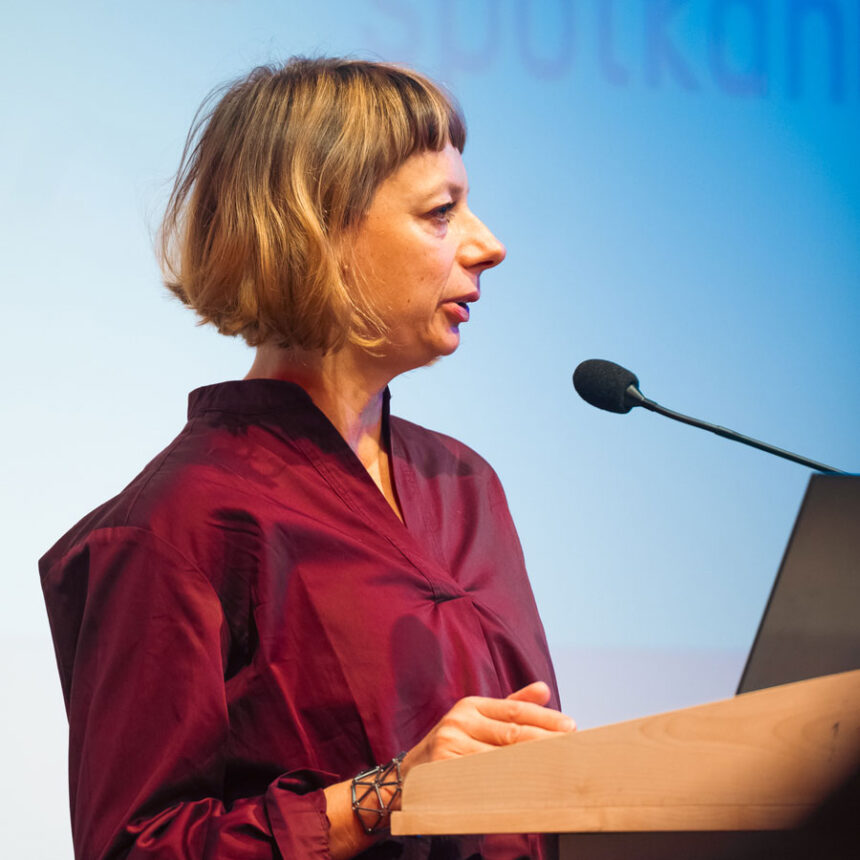
-
WHEN AND WHERE?
- October 5, 2025 (Sunday)
- Time: 12:00
- duration approx. 60 min
- The Marek Edelman Dialogue Center, st. Wojska Polskiego 83
-
IMPORTANT INFO
- Meeting in Polish, translated into English
-
ADMISSION
- Free entry
EUROPEAN COLONIALISM, ŁÓDŹ FACTORIES, AND WHITE DOMINATION
Center for good debate
What is it about?
The discussion “European colonialism, Łódź factories, and white domination” is an attempt to look at Polish history from a broader, global perspective. Although Poland never had overseas colonies, its industrial development, and especially the rapid industrialization of Łódź in the 19th and 20th centuries, was closely linked to European colonial expansion. The wealth and poverty, social modernization, and class and ethnic conflicts that emerged in this part of Europe were linked to global processes and the system of white domination. The meeting will be an opportunity to reflect on how colonialism left its mark on Polish culture, language, and identity aspirations, what connects Łódź’s textile industry with European conquest, and how the fate of factory workers was linked to the experiences of colonized peoples.
Margaret Ohia-Nowak, Wiktor Marzec, and Piotr Puchalski will take part in the conversation, which will be moderated by Monika Bobako. The discussion will provide an opportunity to reflect on why it is worth placing Polish history in the broader context of colonialism and how such a perspective can help us better understand contemporary reality.
By whom?
Monika Bobako – philosopher, researcher of postcolonial and feminist issues, moderator of the meeting.
Margaret Ohia-Nowak – expert on intercultural and anti-discrimination communication.
Wiktor Marzec – sociologist and historian, specializing in social history of the working class and critical theory.
Piotr Puchalski – historian, researcher of colonialism and global economic relations.
Who is it for?
The discussion is aimed at young people and adults interested in social and cultural history, as well as anyone curious about the history of Łódź and its industrial past seen in a global context. The event may be of particular interest to those concerned with issues of colonialism, white supremacy, global inequality, and labor history.
Why is it worth it?
Łódź never developed in isolation from global processes. Its factories, class conflicts, and social dynamics were part of the larger history of European colonialism. Understanding these connections allows us to take a critical look at the past and better understand the problems of the modern world—from racism and global inequality to issues of identity.
Availability
The Dialogue Center building is accessible for people with mobility impairments. It features wide, non-automatic entrance doors without thresholds and an accessible restroom. In front of the building, there is a large parking lot with marked spaces for people with disabilities. Assistance dogs and guide dogs are welcome in both the building and the auditorium. There is a lift in the building.
Parking entrance from Wojska Polskiego Street.
Nearby bus and tram stops: Wojska Polskiego/Centrum Dialogu, Wojska Polskiego/Sporna.
Photos
Monika Bobako at the Łódź of Many Cultures Festival in 2024, photo: HaWa